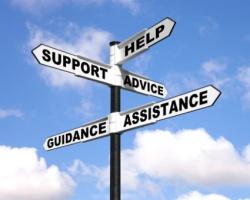My dad’s advice to deal with school yard bullies was to tell them: “Sticks and stones may break my bones but names will never hurt me.”
Neither did it work, nor was it true. An injury from the sticks and stones would have healed long ago; but if I stop and think about it, some of the words said back to me as a youngster still feel like fresh wounds. They shouldn’t…but they do.
Words have a huge effect on the world and particularly on young people who are still in the process of formulating their beliefs about themselves. As these kids move into adolescence, the words of their peers may create drama, but their effects are relatively short lived. The real long-lasting pain comes from the words of their elders. Parents, teachers, coaches, pastors or the next-door neighbor can leave life-long scars even with well-meaning words. I asked some young people what some of the most hurtful things that adults had said to them in their lives. Here are some of the answers:
“You’re not good enough.”
“You’ll never make it.”
“You wouldn’t understand.”
“You can’t make a living doing that.”
Such encounters leave these kids staring at the ceiling on sleepless nights as their repeat these scenarios. They begin to wonder if these words might be accurate descriptions of themselves. All bets are off about what the reactions will be. Cutting, suicide attempts, violence, rebellion, poor decision making, etc. Of course these types of behavior cycles don’t lead to a lot of positive comments being directed toward them.
Enter the youth worker…
Youth workers are self-described professionals who delight in being people who understand. The problem is that often in attempts to erase some of the negative words that have been spoken to these teens, youth workers will spout off statements such as:
“Don’t let anyone tell you what you can or can’t do.”
“It’s not your fault.”
“That person was wrong.”
“That was a lie.”
Often the goal youth workers have in repeating phrases such as these are to make the young person with whom they are dealing feel better. However, cliché statements don’t make teens feel better, but rather make the youth worker feel better. We feel good about ourselves when we believe we have helped someone, even if it doesn’t actually help them. Consider this:
• Is it helpful to tell someone he or she can do something that’s physically impossible for him or her? A 4’2″ 18-year-old won’t be drafted into the NBA no matter how much he dreams about it. Why would we say otherwise? That is a lie.
• Is it helpful to tell someone it wasn’t his or her fault when it was? There are two sides to every story, and it is likely the story the young person is telling has been filtered to make him or herself look better. That is human nature. In saying, “It’s not your fault,” kids know you are ignorant, or it gives them permission to justify their actions. You either will look bad now or in the near future.
• Is it helpful to teach a kid to negate a parent or teacher’s words? After all, in most cases the parents and teachers know these kids much better than we do. The hurtful words may have hurt due to the teen feeling convicted. In saying someone else was wrong, we’re implying we are right. I don’t want to make a claim that may not be true or drive a wedge between them and the important people in their lives. The attempt to help may end up hurting the kid more in the long run.
So negative statements can hurt, and positive statements hurt. What can be done? Here is a suggestion: While it is impossible and preposterous to suggest eliminating all statements from a conversation, consider this advice floating around Twitter attributed to Robert Brault: “A child seldom needs a good talking to as a good listening to.”
The point is that if there is a situation where the temptation is to make a statement—positive or negative—if possible, the best course of action would be to ask a question instead.
Here is an example of the power of questions.
One day, I was sitting with a young man who had been suspended due to violent and destructive behaviors at school. I had worked with this particular kid for some time, and it was frustrating to watch him continue the downward spiral.
I wanted to tell him: “You’re better than this!”
Instead I asked him about his family.
He shared a story filled with pain at every step of the way. There were situations that should never have happened. Instead of being angry at him, I found myself angry at things from his past.
I wanted to tell him: “It’s not your fault!”
Instead I asked, “What would you like to see happen with your life?”
He shared a dream of wanting to help people in need. A story of compassion and gentleness coming from a guy who had beat the snot out of another kid just the day before.
I wanted to point out the irony in his words.
Instead I asked him how I could help him achieve his dreams.
He started to cry. He admitted his failures. He admitted he blamed his past. He admitted he didn’t believe in his own dreams; but in that moment, he believed I did. I’m not sure I actually believed in his dreams, but I wasn’t about to tell him that. I’m just glad that for the most part I kept my mouth shut. Instead of giving him a piece of my mind or a cliché, I gave him dignity.
Danny is just a normal guy, who likes to ride motorcycles, watch movies and discuss philosophy. He also happens to be a youth worker. You can follow his blog or connect with him on Twitter.




